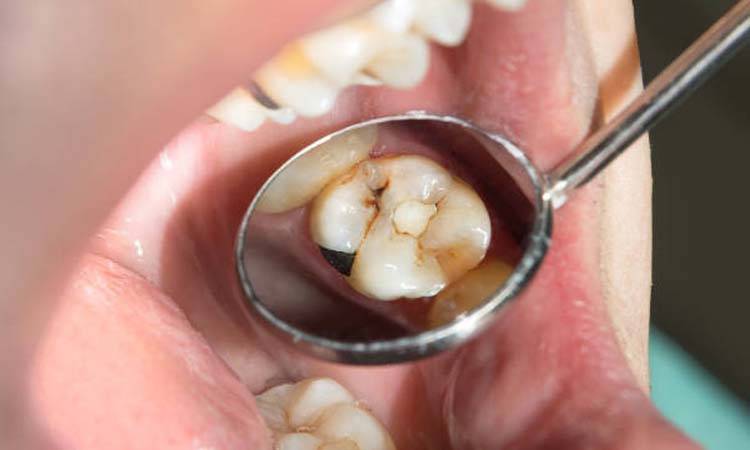
NEW JERSEY: A new study from Rutgers School of Dental Medicine, Rutgers University has explained the greater prevalence of tooth decay in people with Type 1 and Type 2 diabetes.
Diabetes Mellitus refers to a set of diseases characterised by high blood glucose levels and improper carbohydrate, lipid, and protein metabolism. It has also been linked to a multitude of dental diseases and disorders.
Diabetes and Tooth Decay
According to a recent Rutgers study, both Type 1 and Type 2 diabetic patients are at risk for tooth decay because of reduced strength and durability of enamel and dentin, the hard substance under enamel that gives structure to teeth.
To conduct research, Dr Mohammad Ali Saghiri, the lead author of the research, and colleagues used a Vickers microhardness tester to compare the teeth of 35 diabetic mice to those of 35 healthy controls over the course of 28 weeks.
Despite the fact that the two groups started with similar teeth, the diabetic mice's enamel became substantially softer after 12 weeks, and the gap continued to expand throughout the research. By week 28, there were significant changes in dentin microhardness.
As per earlier studies, microhardness is one of the essential mechanical parameters of dental hard tissue structures for understanding how Diabetes Mellitus affects these properties.
According to Dr M Ali Saghiri, they've long seen elevated rates of cavity formation and tooth loss in patients with diabetes and long known that treatments such as fillings did not last as long in such patients but did not know exactly why.
Therefore in this study, Saghiri and his team have shown that diabetes can obstruct the continual process of adding minerals to teeth as they wear away due to normal use.
The study 'Diabetes negatively affects tooth enamel and dentine microhardness: An in-vivo study' has recently been published online in the Archives of Oral Biology.


